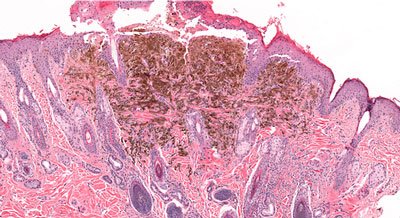Anisina confirmed as effective anti-cancer agent in preclinical studies
Posted: 14 May 2015 | Victoria White
Novogen has confirmed that drug candidate, Anisina, is an effective monotherapy against human melanoma in an animal model…


Novogen has confirmed that drug candidate, Anisina, is an effective monotherapy against human melanoma in an animal model.
The Company announced recently that Anisina was a potent cytotoxic in vitro against human melanoma cells, and in particular that this effect was unaffected by the mutational status of the melanoma cells, particularly the common Braf gene status.
The purpose of the preclinical study was to provide evidence that this potent anti-cancer effect could be transferred to the whole animal. Such evidence is required to justify conducting human clinical studies in adults with solid cancers such as melanoma. The Company previously has announced the effectiveness of Anisina as a monotherapy in mice bearing human neuroblastoma tumours, thereby justifying taking it into clinical trials in children and juveniles with solid cancers such as neuroblastoma. Taken together, the two results confirm the potential clinical benefit of this drug across both adult and paediatric cancers.
In the current study, highly chemo-resistant human melanoma cells were grown in athymic mice and the animals treated either orally or intravenously with Anisina. Both dosage forms were equally effective.
Novogen plan to proceed with a Phase 1 study on Anisina in 2016
Novogen Anti-Tropomyosin Program Director, Justine Stehn PhD, said, “We are pleasantly surprised by the degree of anti-tumour activity of this drug candidate on its own. We had always seen the anti-tropomyosin technology as being an adjunct therapy for the more commonly used anti-mitotic drugs. The rationale behind its development was to destroy that half of a cancer cell’s cytoskeleton that the anti-mitotic drugs didn’t target. We reasoned that destabilising the entire cytoskeleton would achieve a much higher level of anti-cancer effect than that coming from targeting either half alone. And, indeed, that is what we see. Anisina used in combination with anti-mitotic drug, vincristine, increases the anti-cancer potency of vincristine 20-fold.”
Stehn added, “Despite all the evidence showing that Anisina has the potential to be just as effective a stand-alone chemotherapy as the anti-mitotic drugs, we still intend to see Anisina as a companion drug for an anti-mitotic drug. The initial patients, however, will need to be treated with Anisina on its own, and this study now gives us the green light to proceed into a Phase 1 study in the first half of 2016.”
In preparation for both adult and paediatric clinical studies, the Company is conducting studies in a variety of both adult and paediatric solid and non-solid cancer types in order to determine the optimal drug combination. Data of the effectiveness of Anisina in combination with vincristine in animals bearing human neuroblastoma tumours is being presented to a conference in July 2015.
Graham Kelly, Novogen Group CEO, said, “Each step in the drug development process continues to build our confidence in the potential for this exciting first-in-class drug. The fact that we know its target and how it works; the fact that it is making the most commonly used drugs in chemotherapy work 20-times better, as well as looking like we can extend the effectiveness of the combination into tumor types traditionally unresponsive to anti-mitotic drugs; the fact that, in the case of melanoma anyway, its effectiveness is unaffected by mutational status; and the fact that it can be delivered conveniently by the oral route and in that form was well tolerated by animals with no observed side-effects: all these factors point to a highly versatile and promising new drug candidate with potentially broad application across the cancer spectrum.”



